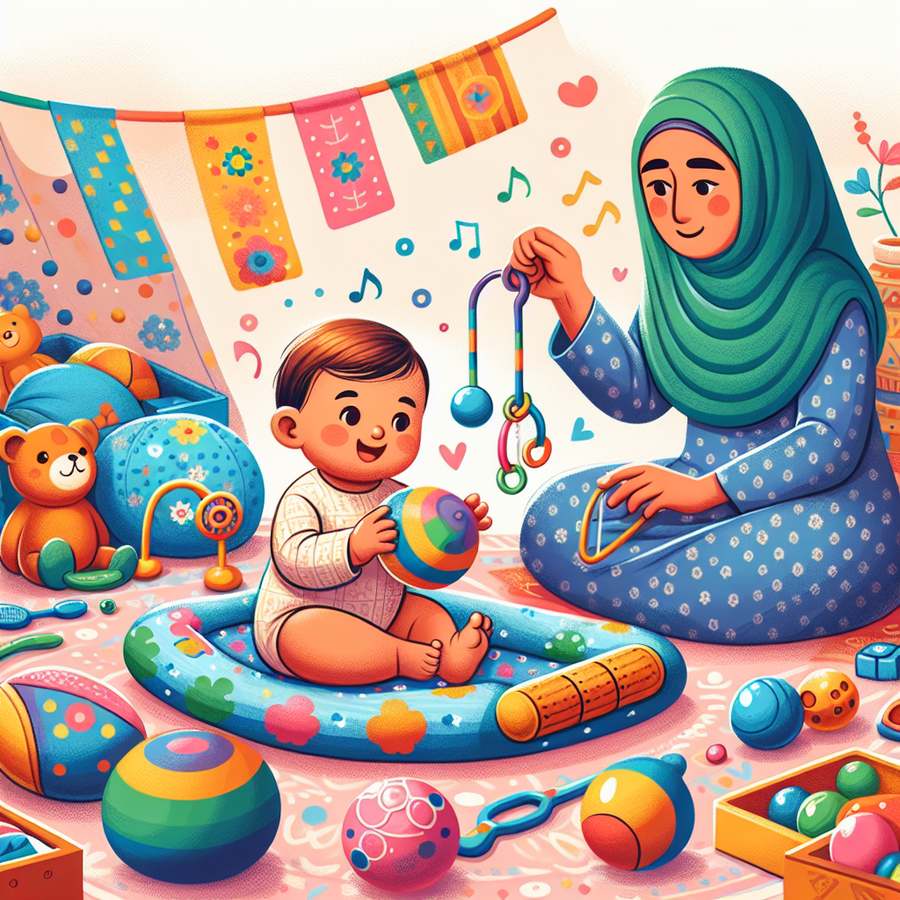The importance of sensory play for newborn development cannot be overstated. From the very first days of life, babies are designed to learn about their world through their senses. Sensory play, which involves activities that stimulate a baby’s senses of sight, sound, touch, taste, and smell, plays a pivotal role in supporting their cognitive growth, physical development, and emotional well-being. This form of play is not just beneficial; it’s essential for laying down the foundation of lifelong learning and development.
The Crucial Role of Sensory Play in Early Development
Sensory play is much more than just fun and games. It is a critical component of early childhood development that supports a wide range of developmental milestones. Through sensory play, newborns discover their environment and begin to understand how things work. Research demonstrates that engaging in sensory play helps strengthen brain pathways crucial for more complex learning tasks, such as language development, cognitive growth, motor skills, problem-solving skills, and social interaction.
Engaging in activities that stimulate the senses can significantly enhance a newborn’s ability to process and respond to information. This is particularly important in the first year of life, a period of rapid brain development. Sensory play not only supports cognitive and physical development but also fosters emotional security by providing opportunities for exploration within a safe environment.
Unlocking Newborn Potential Through Sensory Play
By incorporating sensory play into your baby’s daily routine, you are providing them with the tools they need to explore and make sense of their world. From simple activities like exploring different textures with their hands to more complex ones like listening to a variety of sounds, sensory play offers endless possibilities for discovery. It’s crucial for parents to understand the importance of sensory play for newborn development and to actively seek out opportunities to incorporate these experiences into their baby’s life.
For example, activities such as gentle massage, playing with brightly colored toys, listening to soft music, or exploring safe household items can all be part of sensory play. Each of these activities stimulates different senses and supports various aspects of development. By engaging your baby in a variety of sensory experiences, you’re not only enhancing their current learning but are also paving the way for future developmental milestones.
The Importance of Sensory Play for Newborn Development
The importance of sensory play for newborn development extends beyond simple playtime. It is a fundamental aspect of encouraging healthy brain development and fostering early learning. Activities that engage the senses help to build nerve connections in the brain’s pathways, which are essential for a child’s ability to complete more complex learning tasks. Sensory play also aids in developing and enhancing memory, helps babies learn sensory attributes (hot, cold, sticky, dry), and supports language development, social skills, and problem-solving skills.
Moreover, sensory play is not limited to purely tactile experiences. It encompasses a broad range of activities that stimulate all the senses, encouraging babies to use their sense of sight, hearing, touch, smell, and taste to explore their environment. This holistic approach to learning supports a well-rounded development, preparing newborns for a lifetime of learning and discovery.
Creating Engaging Sensory Play Activities
Creating engaging sensory play activities doesn’t have to be complicated or expensive. Many effective sensory play ideas can be crafted from everyday items found around the house. Fabric scraps of different textures, bowls of water for splashing, or even a simple game of ‘peek-a-boo’ can provide valuable sensory experiences that contribute to a baby’s overall development.
Parents and caregivers can get creative with sensory play by incorporating items with various textures, colors, sounds, and smells. Remember, the key is to stimulate the senses in a safe and supervised environment. For more ideas, the Importance of Sensory Play for Newborn Development offers a wealth of information and activities designed to support your baby’s growth and development through sensory exploration.
By understanding the importance of sensory play for newborn development and actively engaging your baby in these activities, you are setting the stage for a lifetime of learning. Sensory play is not just about immediate benefits; it’s about nurturing a curious, engaged, and intelligent child ready to explore the world.













